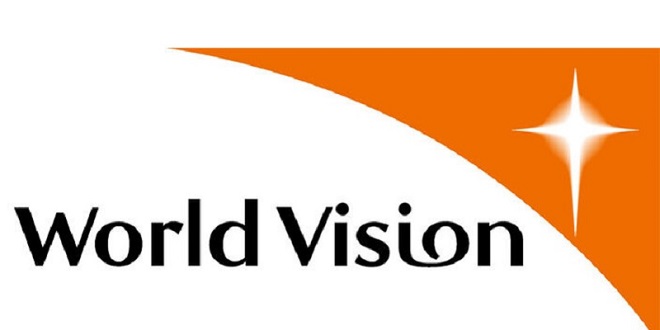
Pasig City, Manila – On 2022 of November 25, Youth Leadership Democracy (YouthLed) in collaboration with Social Weather Stations (SWS) administered a national youth survey to obtain a better understanding and discernment of the internal welfare aspirations, civic engagement, and political engagement of Filipino Youth in a study entitled, “The State of the Filipino Youth 2021.”
As per conducting this study last March 14-29 2021, it unveils comprehensive insight into the Filipino youth’s current perception. The participants are composed of ages ranging from 15-30 years old approximately 4,900 youth across all regions in the country, in select major cities, and vote-rich areas. This report centered on youth activism and civic engagement which aims to benefit the civic society, government, academe, private sectors, and policy community to deeper appreciate the youth’s motivation and proffer stronger foundations of engagement that may contribute to molding the future of the country.

Captured by: Rozjari Raquedan
Filipino Youth Wellbeing and Aspirations
The majority of young Filipinos’ perspectives on their aspiration and life goals, out of the 13 pre-listed choices, “To help parents and siblings financially” was identified as most pleased (77%) – with 38% of them identifying this as the top priority. This result mainly synchronized with the responses gathered from the most important Filipino values – uncovering that “respect” owned the most vote (46%), followed by hospitality (24%), family-first (31%), and solidarity (25%).
Indeed, many young Filipino still sight pride in being Filipino with eighty-one percent (81%). It increased by 12 points from the conducted survey last April 1996 which was 69%. However, when questioned about job prospects, 33% say they have enough decent ones where they are, while 8% say they prefer working and living overseas.
Filipino Youth Civic Engagement
Civic engagement among youth is critical because it prevents a democratic backslide through societal initiatives and participation in the development of standardized democratic governance for its citizens. A total of 24% identified their household as their source of information for civic education. In addition, 92% were knowledgeable about the importance of civil rights and civic responsibilities, such as the right of every citizen to undergo due process of law when accused. With the statement determining their confidence level regarding their sufficient knowledge of the systematic method of creating a law, 70% identified themselves as well-informed. Philippine democracy garnered a satisfactory rate of 70%, which was 15 percentage points higher than in April 1996. However, from the youth’s perspective, 54% agreed that Philippine democracy has minor problems.
Although they are open to engagement through political actions, 56% of them stated that they do not visualize themselves initiating a movement for specific advocacy. It only shows how youth seemed confident in their acquired information and civic education in their homes without fact-checking and without admitting the government’s slackness without attempting to point out its flaws.
Filipino Youth Political Awareness and Participation
The majority of those surveyed (68% agreed) agreed that youth can communicate and express their political standpoints, and 57% can confidently articulate them. A percentage of 55% believed that they were entitled to be held accountable for the government’s malfeasance, and 46% agreed that being arrested for violations without a warrant was reasonable. Awareness of the current heads of different branches was asked, such as the executive (33% are aware), legislative (27% are aware), and judiciary (22% are aware). Some political activities such as sharing political posts on social media, signing online petitions, contacting officials from the government about a certain concern, joining and volunteering for a political group, and participating in a strike were the most common ones identified.
Both the performance of the local and barangay governments received high marks. In terms of electoral participation, many youths know that it is their civic duty (52%), which explains why 47% of the surveyed voted in local, barangay, and SK elections. There are 45% who use television as their main source of information, which can help them choose their candidate and their preferred traits such as philanthropist (39%), hard worker (25%), intelligent (24%), with a clear stance on society’s issues (23%) and well experienced (22%). Although youth engagement in politics is promising for a specific government position, aspirant youth leaders should be encouraged to join organizations and educational institutions that will hone their skills to formulate strategies for the Philippine government.

Commentary of the Panelist
As the study had been shared with the mass, the panelist also proffer their commentary. According to the Assistant Secretary for Youth Affairs and Governance of DepEd, Mr. Dexter A. Galban, the survey conducted was quite intriguing as it gives the mass an outlook on what the youth are currently experiencing. He reiterated that it serves as a guidepost for the Department of Education due to the youth part of the survey reflects the efforts offered by the Department of Education in terms of youth formation, youth development, and how the students inculcate the different government programs and policies that they adapt with them and how it may eventually affect their perspectives about their co-youth, the country, and the future. Assistant Secretary Galban also highlighted that this study may shed light on their part as they could provide better approaches and strategies for developing the young across the different stage groups.
Intersecting with the commentary initially given, the Commissioner Representing Luzon of the National Youth Commission, Ms. Reena Vivienne C. Pineda indicated that the government agency’s projects and programs must unite to maintain the idealism of which keeping the youth from being jaded. She added that the data gathered is a prerequisite in 3 diverse manners. First, with the guidance of the study, the prioritization of projects and programs for the youth may then be identified. Second, given the fact that the majority of government people leading are part of the older generation, this study may lead them to learn to communicate with the youth as the communication gap is a great hinder between generations – certain values and languages of the young may be found opposing to theirs (older generation). And lastly, the involvement of the youth with public issues may increase. The study created a bridge to indicate the effective and efficient use of the given resources by the government and organizations.
“In our context, it is really inspiring that our response our more issue-based… our response now is really inclusive and I see that there are gender equality and equity.” Mrs. Jai Hadji Saplin, Founder of Super Lumba specified. As she, also experiences limitations, appreciates the study takes consideration of these factors which many still perceived as redundant – agreeing with the results of the increased state of satisfaction in the practice of democracy as it reflects the shape of the women now in the Bangsamoro Region as selfsame as men.
As a part of Civil Society Organizations, Ferry Irish Santiago of Adhika Ph stated her dismay at the result of this study as twenty-four percent (24%) of youth respondents are a mere part of social groups or organizations, despite the efforts of the government and non-governmental organizations to establish this study. “This also calls for the strengthening of the current program of our government. For example, The Youth Organization Administration Program of the National Youth Commission… to empower more our local youth development offices in our LGUs so that we could have more issue-based groups on the ground and not just forming them for the sake of compliance.”
Also, Executive Director Santiago highlight that the low percentage of awareness of programs including leadership development and community building is not viable in reality. “Baka nasa comfort zone lang tayo,” she meant that the Youth Organizations, Civil Society Organizations, and Government agencies should provide leadership training and community engagement as well as widen the scope coverage.
Blogger’s Takeaway
Indeed, the study is critical because the bulk of the country’s population is comprised of youth. I agree with Executive Director Santiago’s comment that young Filipinos’ involvement with leadership development and community is not so low; nonetheless, political trust is what causes the survey to potentially deteriorate. Youth political and civic involvement must be tailored and personally determined since it allows the young to freely express their unique interests and self-expression. We could appreciate, support, and credit their efforts by allowing them to organize and express themselves, as this is a vital part of any well-functioning modern democracy.






